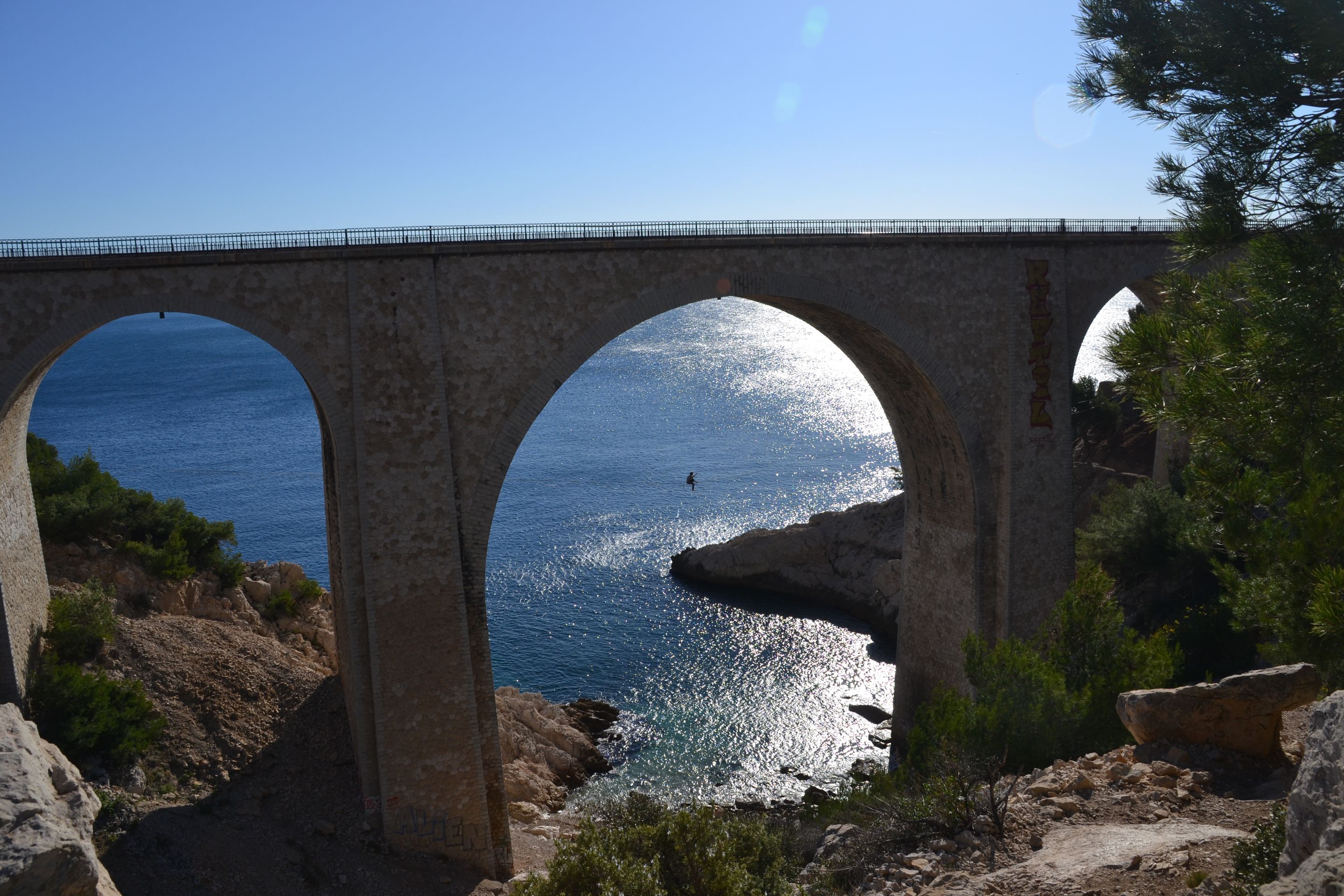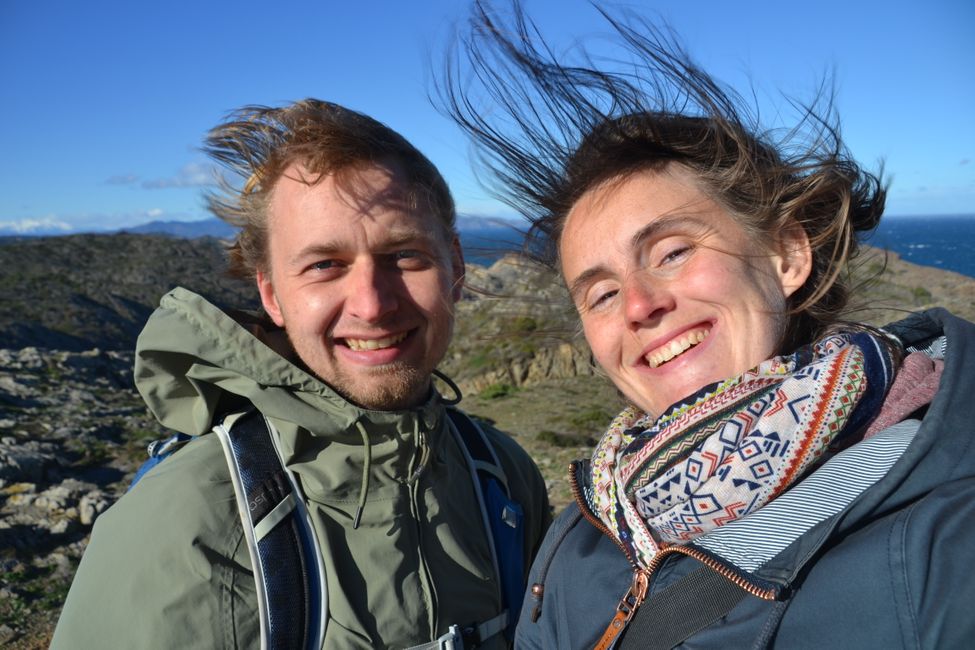#118 Conclusion Greece
Pubblicato: 05.05.2022
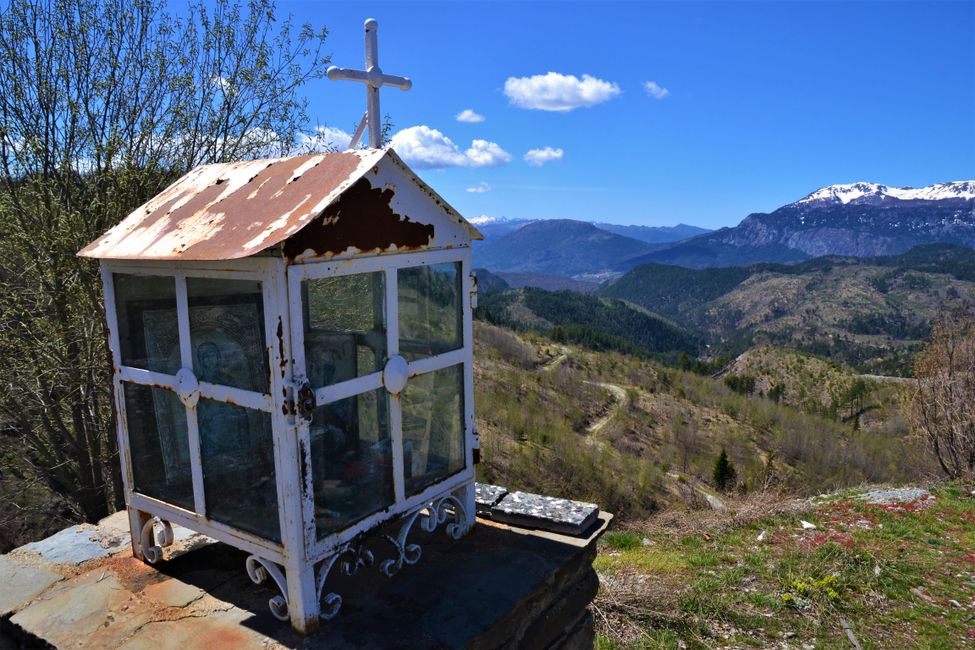
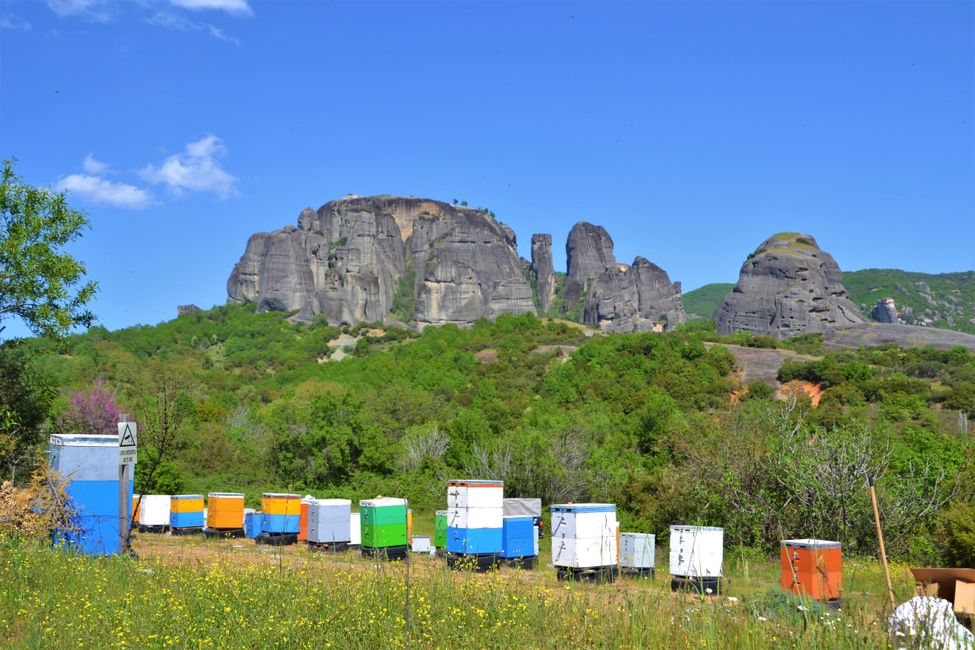
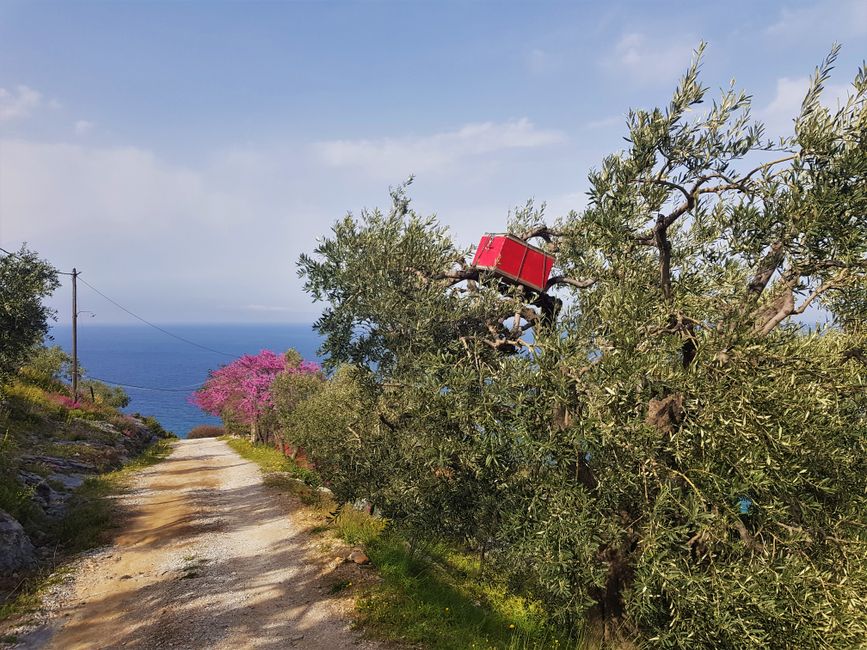
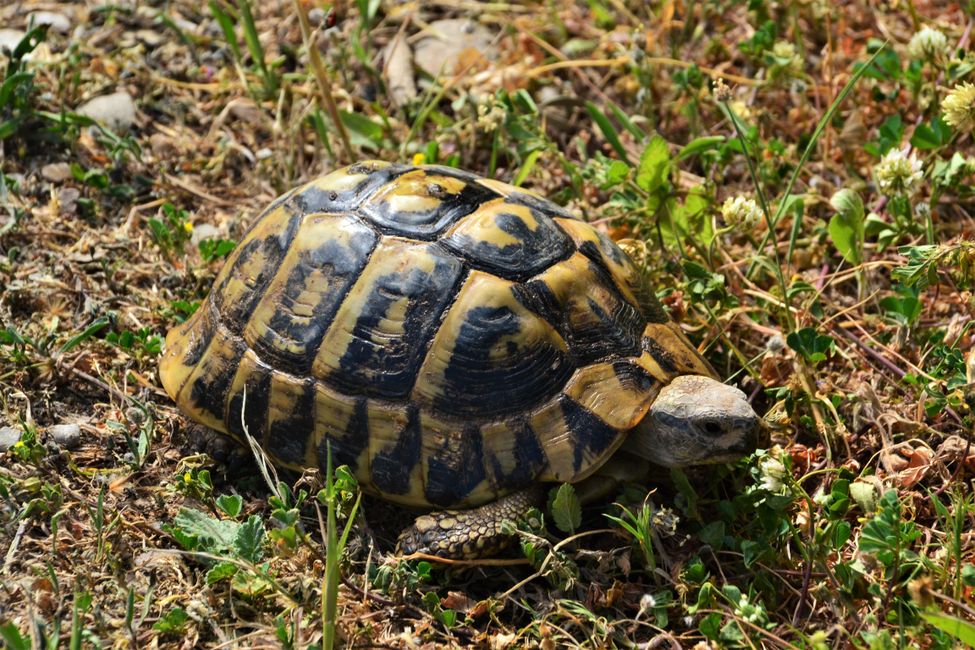
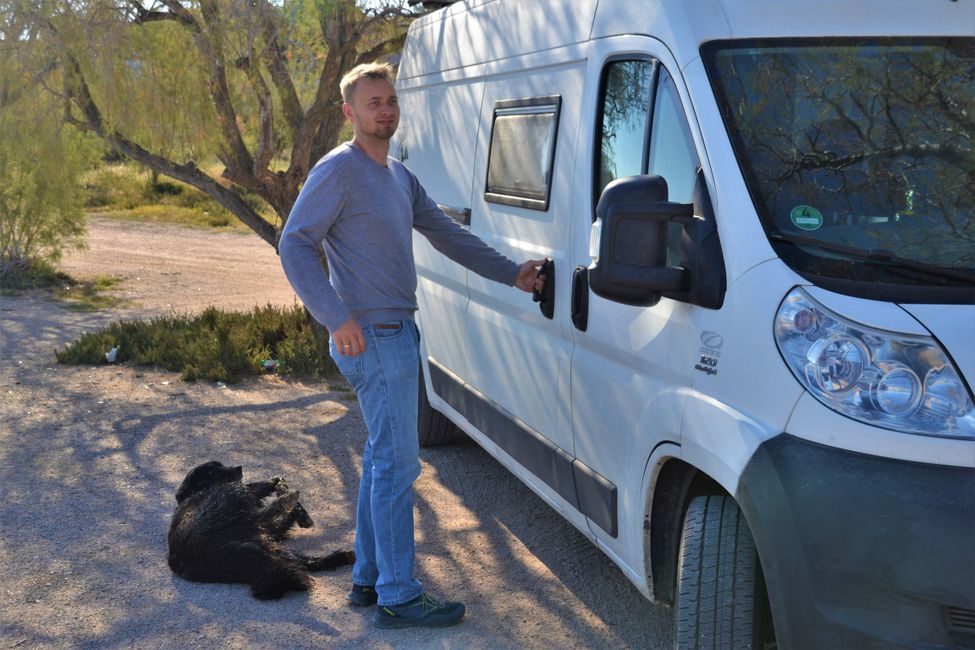
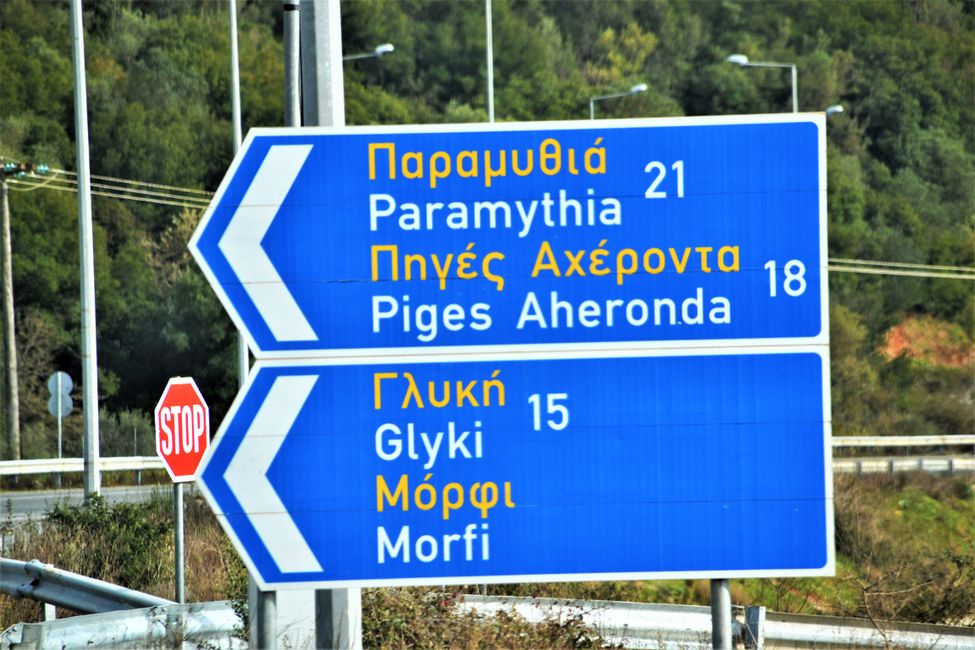
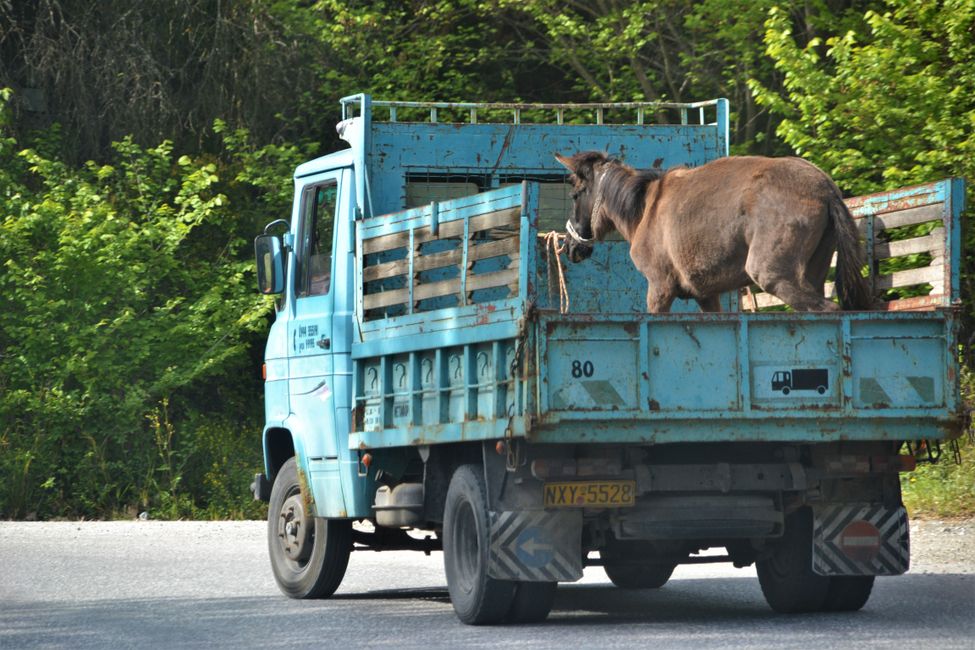
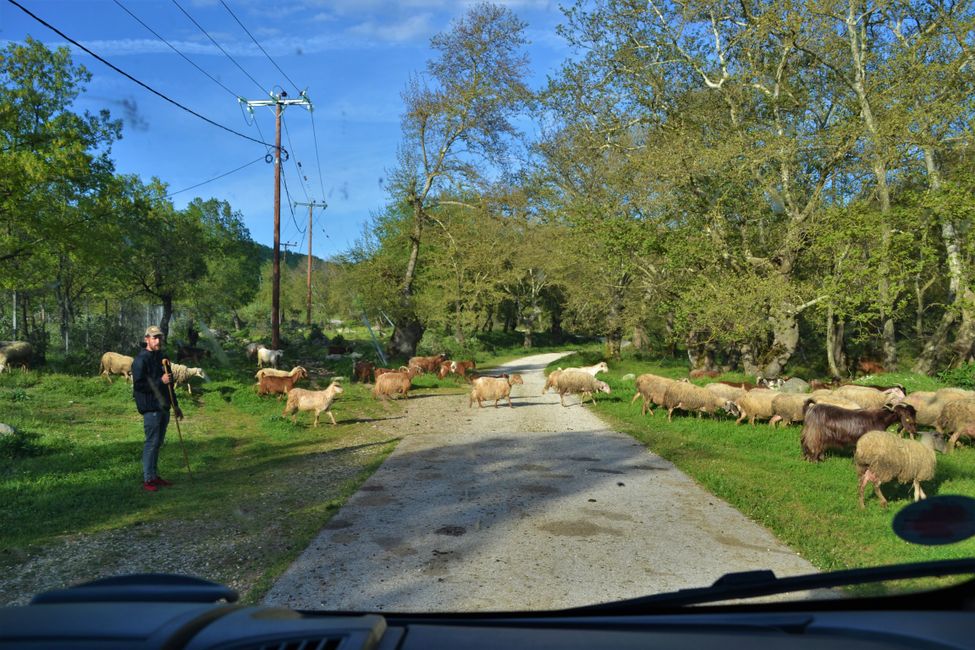
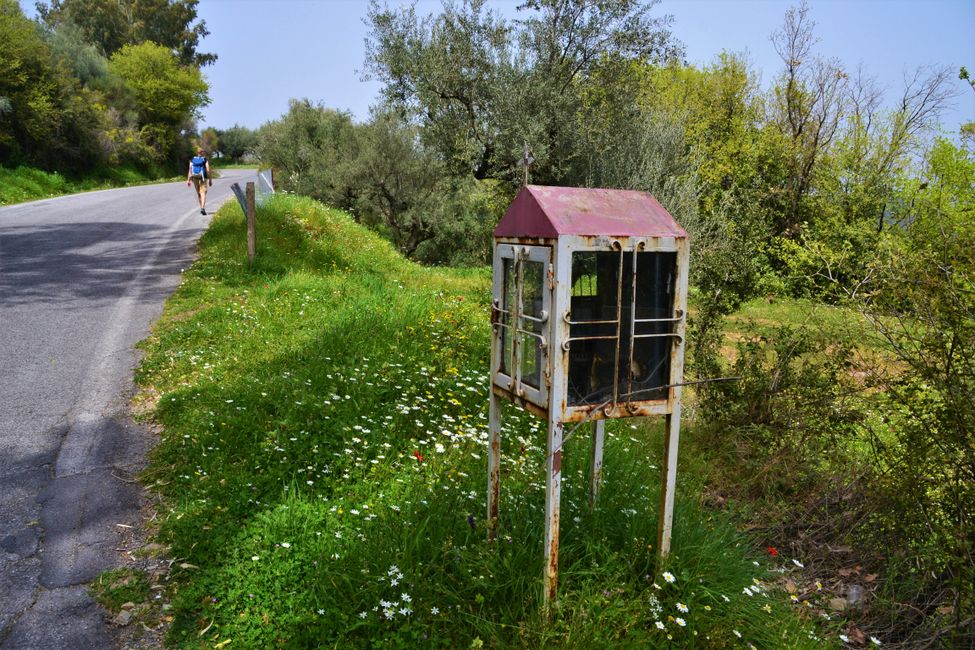
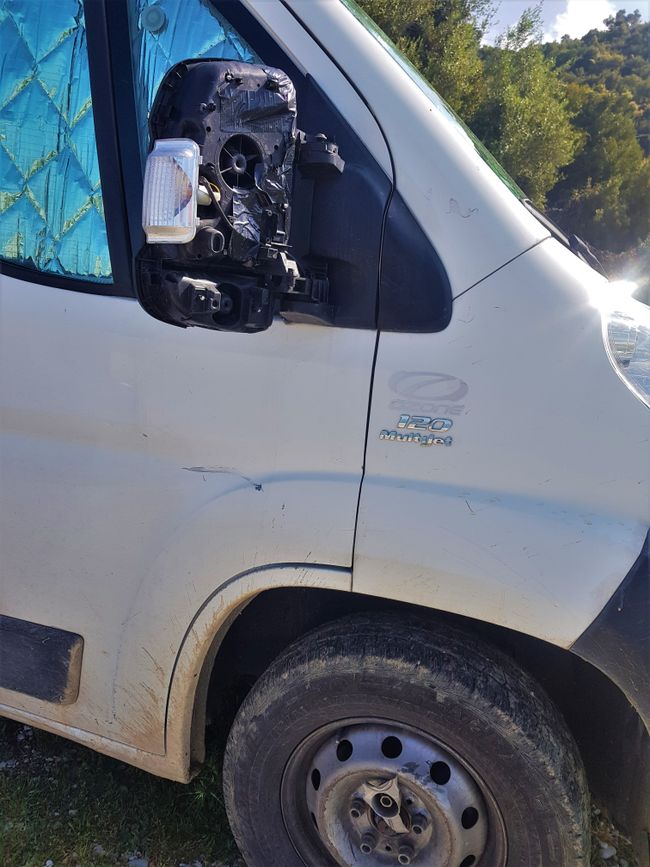
Iscriviti alla Newsletter
April 29, 2022: Kastoria
Before crossing another border, we want everyone to write a conclusion about Greece. Each of us wrote our own conclusion without knowing what the others wrote. So, here are our conclusions about Greece:
F. In Greece, we had the warmest weather on our entire trip, which makes it difficult to objectively compare to other countries. We spent a lot of time swimming in the sea or river in Greece, not only because of the breathtaking turquoise water. I had to get used to the rocky beaches and my sensitive feet, but luckily there were also some sandy beaches. Besides the many beautiful beaches, of which we have only seen about 10%, as many of the most beautiful beaches are said to be on the thousands of Greek islands, Greece also has gigantic mountain ranges and mountain regions everywhere. It feels like the mainland is just mountains. This makes driving with a big car a bit slower but not impossible. The roads in Greece are in great condition, and even in the remote areas where there are hardly any people, there are well-built two-lane paved roads. Of course, there might be a pothole here and there, but with such a low population density outside of Athens, that's okay.
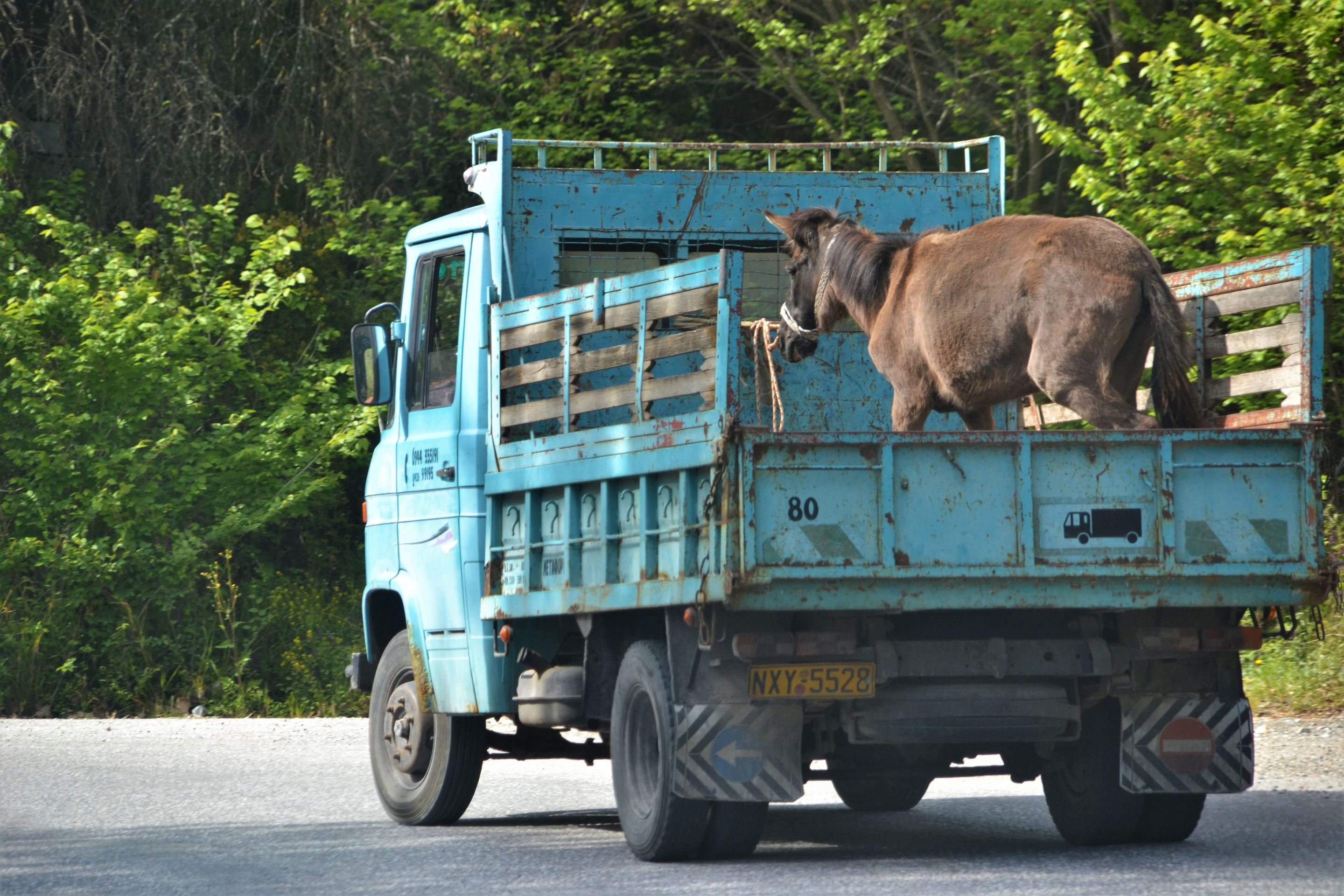
Many say that traffic in Italy is particularly chaotic and dangerous for us Germans. However, I have to say that I often felt traffic in Greece was much more dangerous. In Italy, people drive more proactively, and the drivers make themselves noticed in dangerous situations or in not quite legal operations by honking. That is not the case in Greece. The hazard lights are a frequently used means to inform other road users that something is about to happen. But this can be a normal turn from the road into a driveway, a stop at the roadside, or illegal parking somewhere in traffic.
The roundabouts in Greece are absolutely curious. There are roundabouts where the one entering has the right of way and there are regular roundabouts where the inside road user has the right of way. The symbol for the roundabout is shown in both types of roundabouts, but some do not have a give-way sign, so right before left applies, and you wait in the roundabout, blocking the rest of the traffic behind you. Sometimes there is a stop sign instead of a give-way sign. In my experience, they are the same.
The scooter riders are particularly wild here. They squeeze into the smallest gap and try to get through quickly. In addition, most people here drive without a helmet, so I was glad that the scooter rider I had an accident with was wearing a helmet, which probably protected him from more serious injuries.
Short digression because we didn't mention it in the blog: When turning from the road into a roadside parking lot, I was overtaken on the right by a scooter rider. I didn't see him and only heard the crash. He took our side mirror with his upper body, and his scooter was stopped by our front wheel. I was initially shocked because the crash was so loud. But immediately, 5-6 locals took care of the fallen scooter rider, nothing happened to our car except for a broken side mirror and a small scratch, and the scooter rider got back on his scooter after a few minutes and continued driving. One of the locals, whose car the scooter rider landed on after his flight through the air, said to us that we shouldn't worry so much about it because everyone here drives like crazy, and this driver probably didn't want the police because he didn't have a driver's license or insurance. Well, that's the traffic in Greece for you.

Refueling in Greece is particularly relaxed – apart from the current prices at the pump, of course (diesel ~€1.8 and petrol ~€2.2) – because theoretically, you don't have to leave your car. Many gas stations have attendants who refuel your car and wash your windshield during the refueling process. If you pay by card, the mobile card reader is also handed through the window.
Waste disposal was a bit confusing for us at first. We were used to large public garbage containers at the roadside in Italy, Portugal, Spain, and France, where the garbage is separated into 3-6 categories. Although there are also large garbage containers at the roadside in Greece, waste separation is not very common. In most places, there are two different bins. The green or black bin is for general waste, and the blue bins are for recyclable waste. This includes all items with a green dot, metal, paper, and sometimes glass. I doubt that Greeks sort them out again. Additionally, in most cases, not only the intended waste ends up in the blue bin.
Apart from that, the Greeks are super friendly and open-minded. Especially in regions that are not overrun by tourists, there are many locals who were interested in us and wanted to chat with us. Communication often works better in German than in English here, and there are quite a few Greeks who are fans of Germany. I am aware that there are also people with different opinions here (especially because of the austerity measures after the financial crisis), but we haven't met them. Not everything may be perfect in Greece, or sometimes there may not be enough material, but everyone helps each other where they can, and somehow you can also make do with the missing material. We have experienced this frequently on our trip here in Greece. It may not always meet German safety standards and German orderliness, but that's not always so bad and offers more freedom for the individual in some places. I will definitely come back to Greece – then without a car and with a boat.
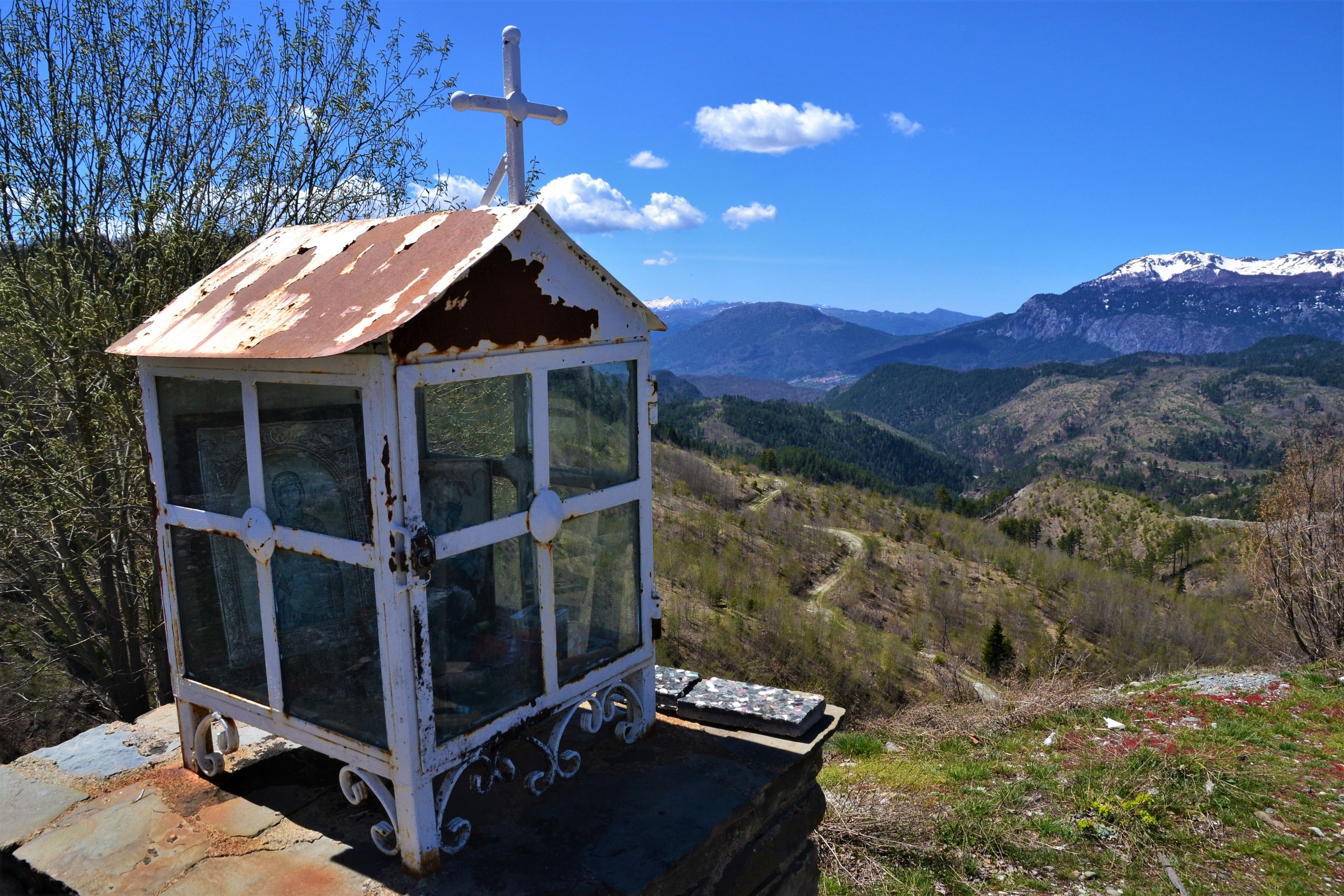
J. The people in Greece are incredibly nice. We haven't met so many locals in any other country on our trip, because the Greeks are very open, friendly, and interested. We were regularly approached, especially in the northern and more rural, non-touristy areas. Communication usually worked great, as everyone speaks very good English, except for some elderly people in the countryside. Nevertheless, everyone was thrilled when I said one of my few Greek words (hello, thank you, goodbye). I had perfected my yassas (hello or goodbye) so well that in the last week, I was mistaken for a Greek woman multiple times.
The Greek script, however, is even more complicated. Although we already knew some letters from mathematics and physics, at the beginning, it was impossible for us to read signs. Fortunately, important road signs are also translated into "our" script. Through these translations, I learned more and more letters over time, so now I can even read some place names or untranslated signs. Nevertheless, I always feel like a first-grader who hasn't learned all the letters yet and constantly confuses or forgets the others. Our navigation system, which usually reads out the street names we have to turn into, doesn't even try here in Greece or only reads the characters it knows (apparently just the hyphen). So here in Greece, we constantly turn into "Bindestrich Street" or "Bindestrich Bindestrich Street".
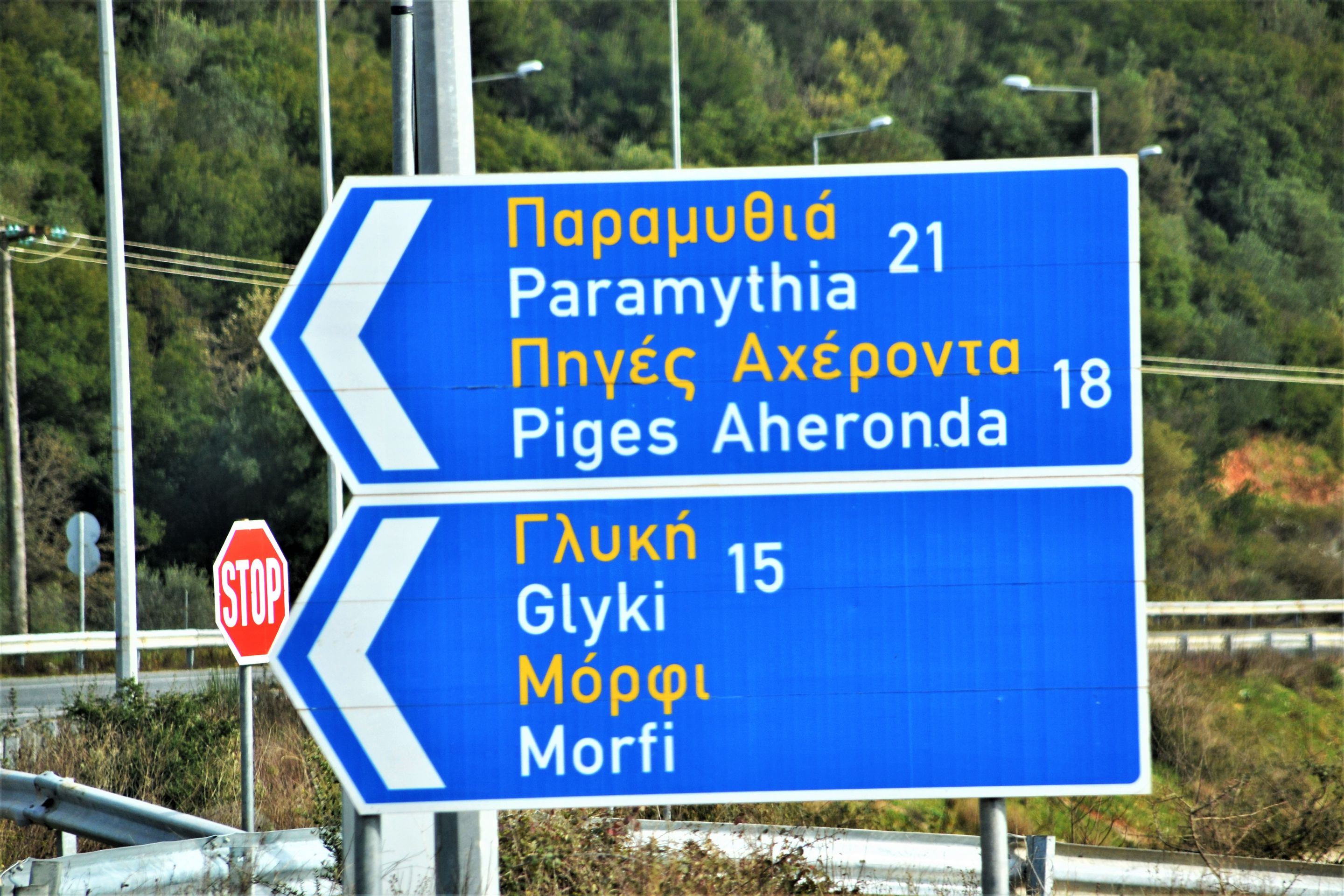
We have been in Greece for exactly five weeks, which is too short to see the whole country. We could spend many more months here and have firmly determined to come back again. So far, we have only seen two of the almost 300 inhabited islands, and we have saved the northeast, which was highly recommended to us, for one of our future trips. Greece seems to be beautiful everywhere, so the choice of possible travel destinations is huge. My personal favorites were the island of Lefkada (#101), Mount Pelion (#114), and Meteora (#115). But everywhere else was beautiful as well. In Greece, there is not only a several thousand-year-old culture but also mountains and the sea everywhere. 80% of Greece is mountainous, and the sea never seems far away.
And then there is the excellent Greek cuisine. I have to say that, unlike in many Greek restaurants in Germany, the food here is not almost exclusively meat, and there are very tasty dishes for vegetarians as well. The feta cheese is particularly important, which, similar to ham in Spain and cheese in France, is offered in an infinite variety at supermarkets and markets. But even vegans have plenty of options here because when the Greeks fast, which they regularly do, they eat vegan. So there are also many vegan products, and even in cheap supermarkets, there is a wide range of milk alternatives and vegan cheese and yogurt.
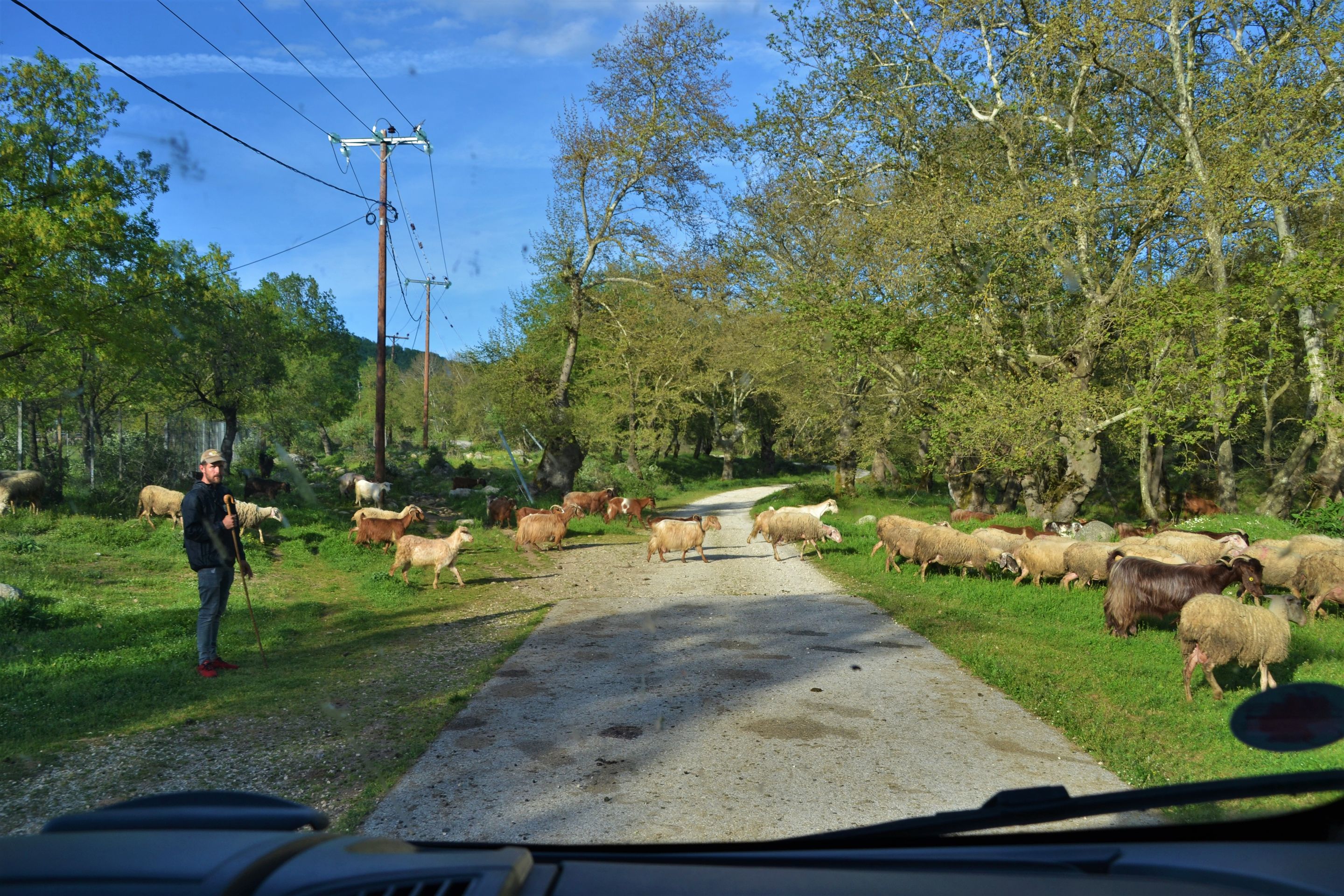
Perhaps it is because of the high demand for feta that we have encountered surprisingly many wandering shepherds with flocks of goats and sheep. At the roadside, we also often saw numerous colorful beehives. We don't know if they are there for honey making or for pollinating the plants, but some are so tilted that it is impossible to take anything out again.
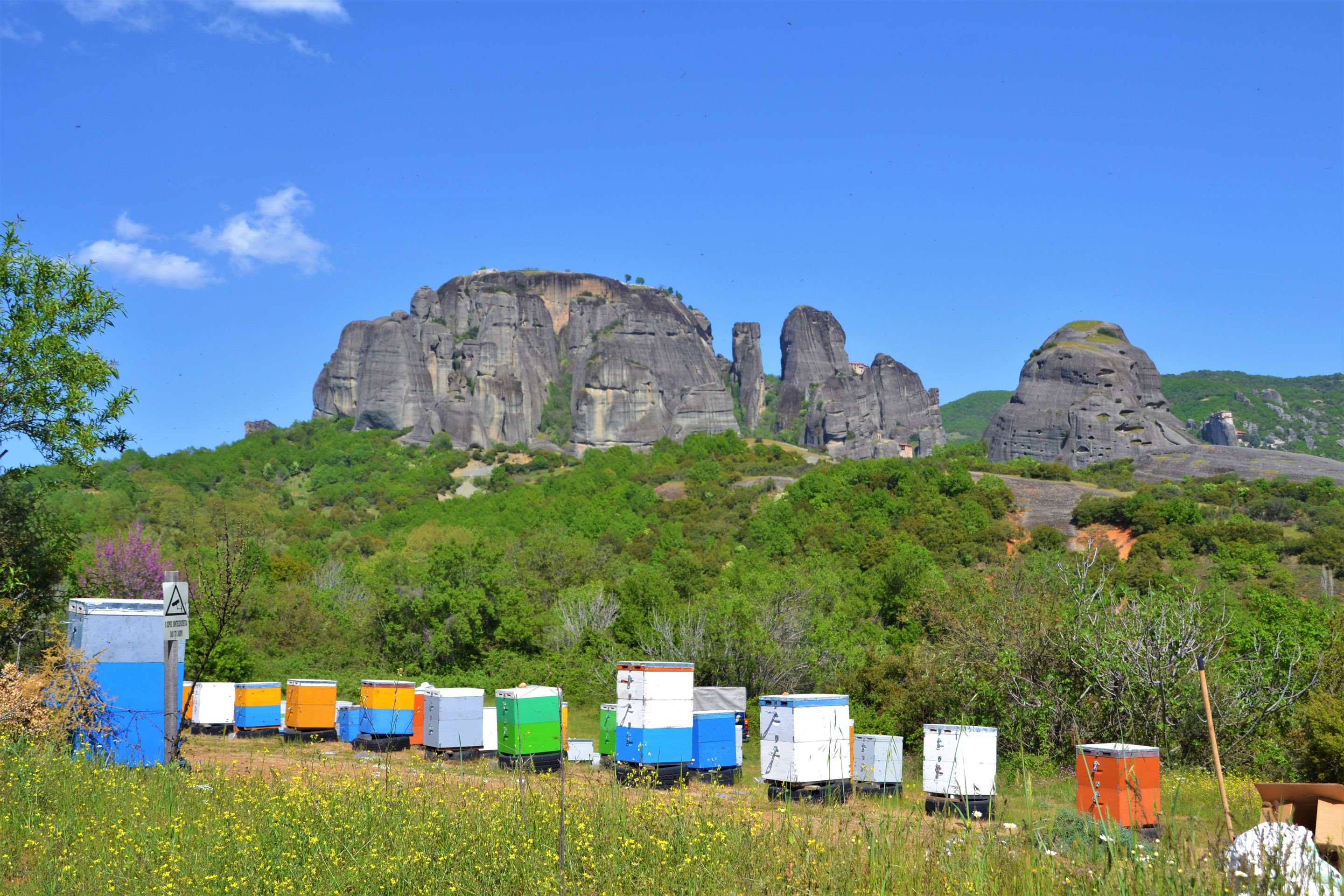
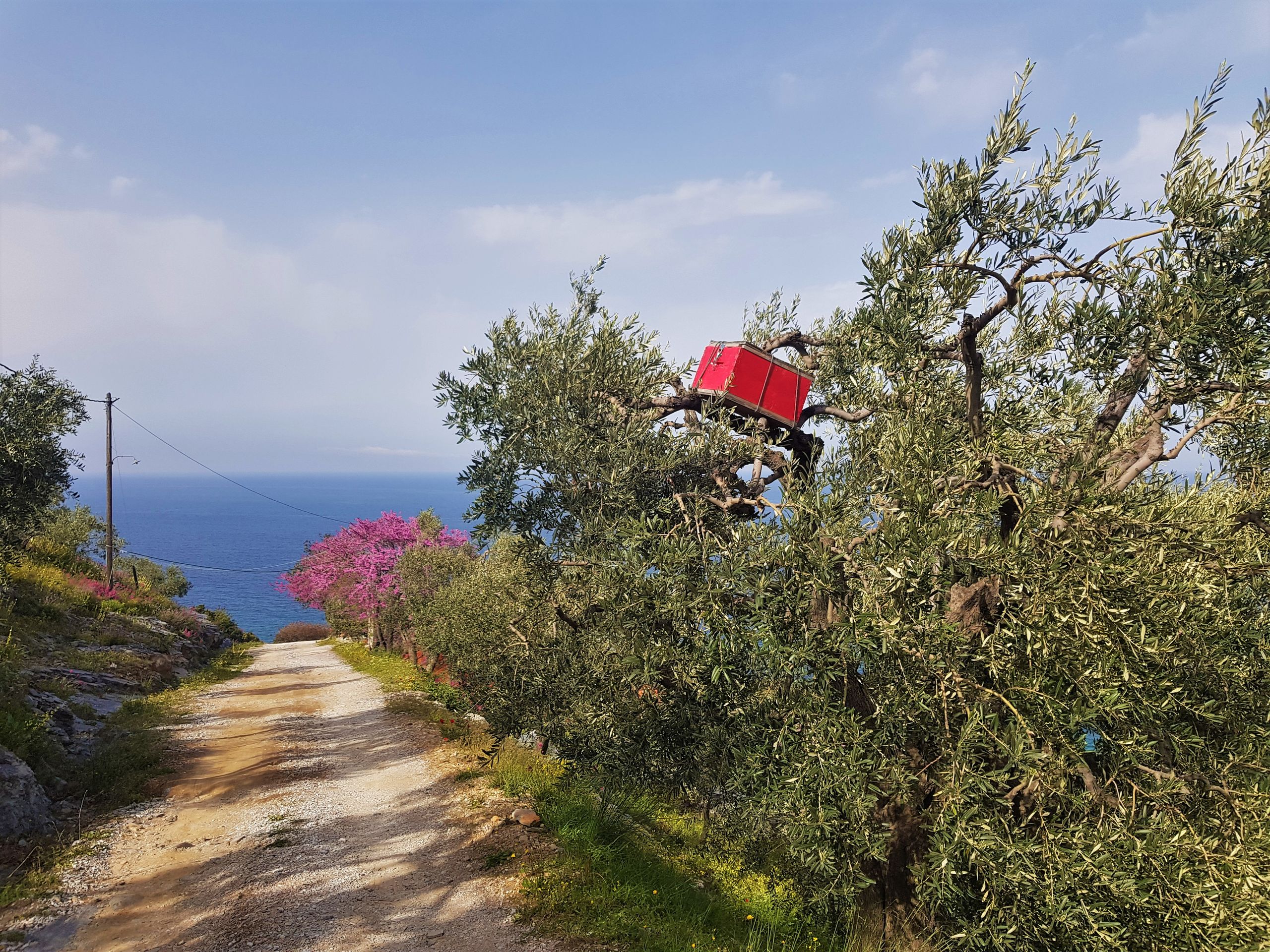
There are also many reptiles in Greece. We encountered countless tortoises that move slowly through the grass or across the road. The many lizards, on the other hand, move so fast that we often didn't catch sight of them. There are also some snakes in Greece, but they are by no means as dangerous or widespread as in Australia. However, it is still best to stay away from them.
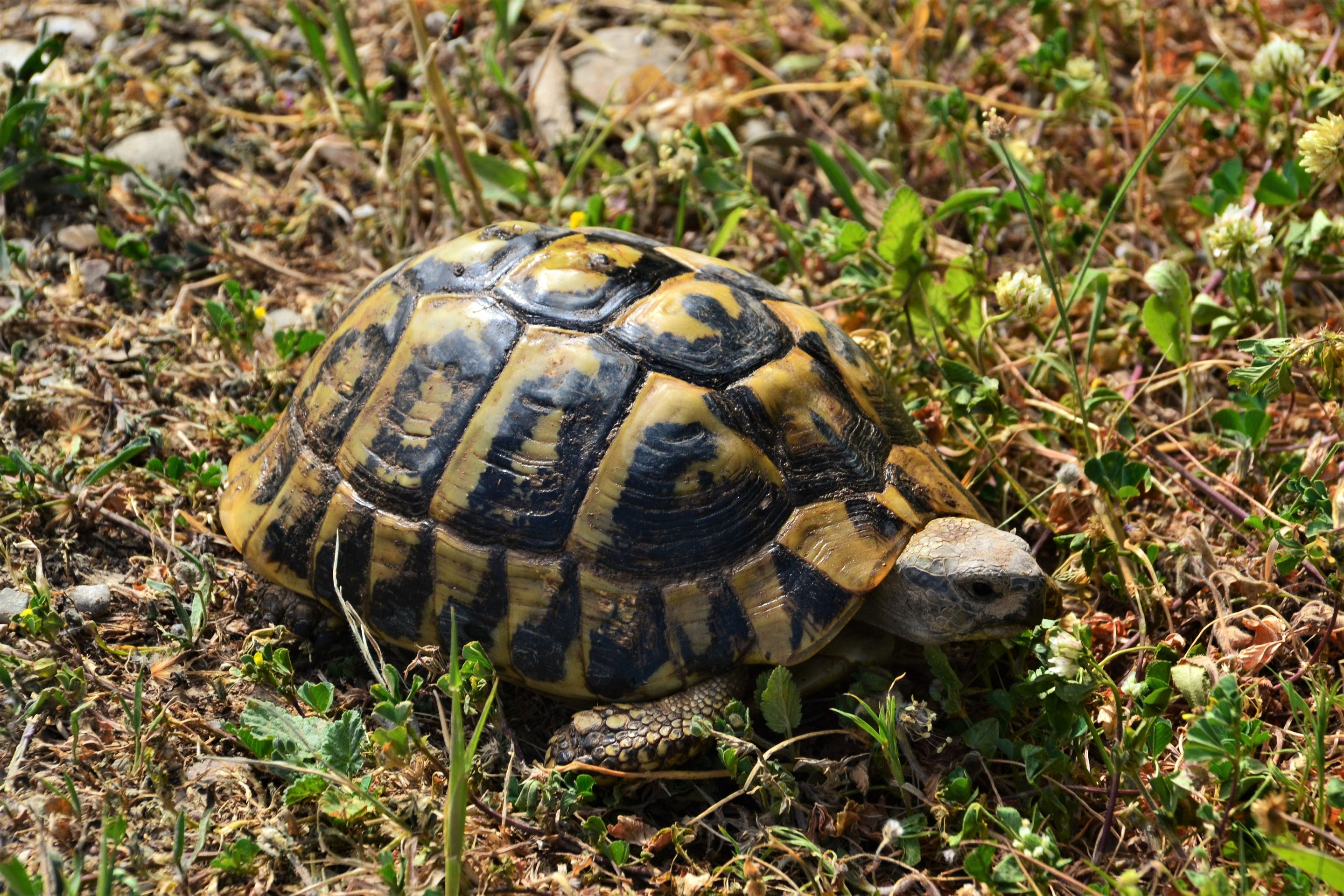
On the streets, we have seen an incredible number of cats and dogs. Surprisingly, the stray dogs were all very friendly and affectionate, unlike what I expected, and we haven't come across a single aggressive stray dog. The aggressive dogs were all pets. So, we went for many walks with dogs here in Greece because the stray dogs often just accompanied us.
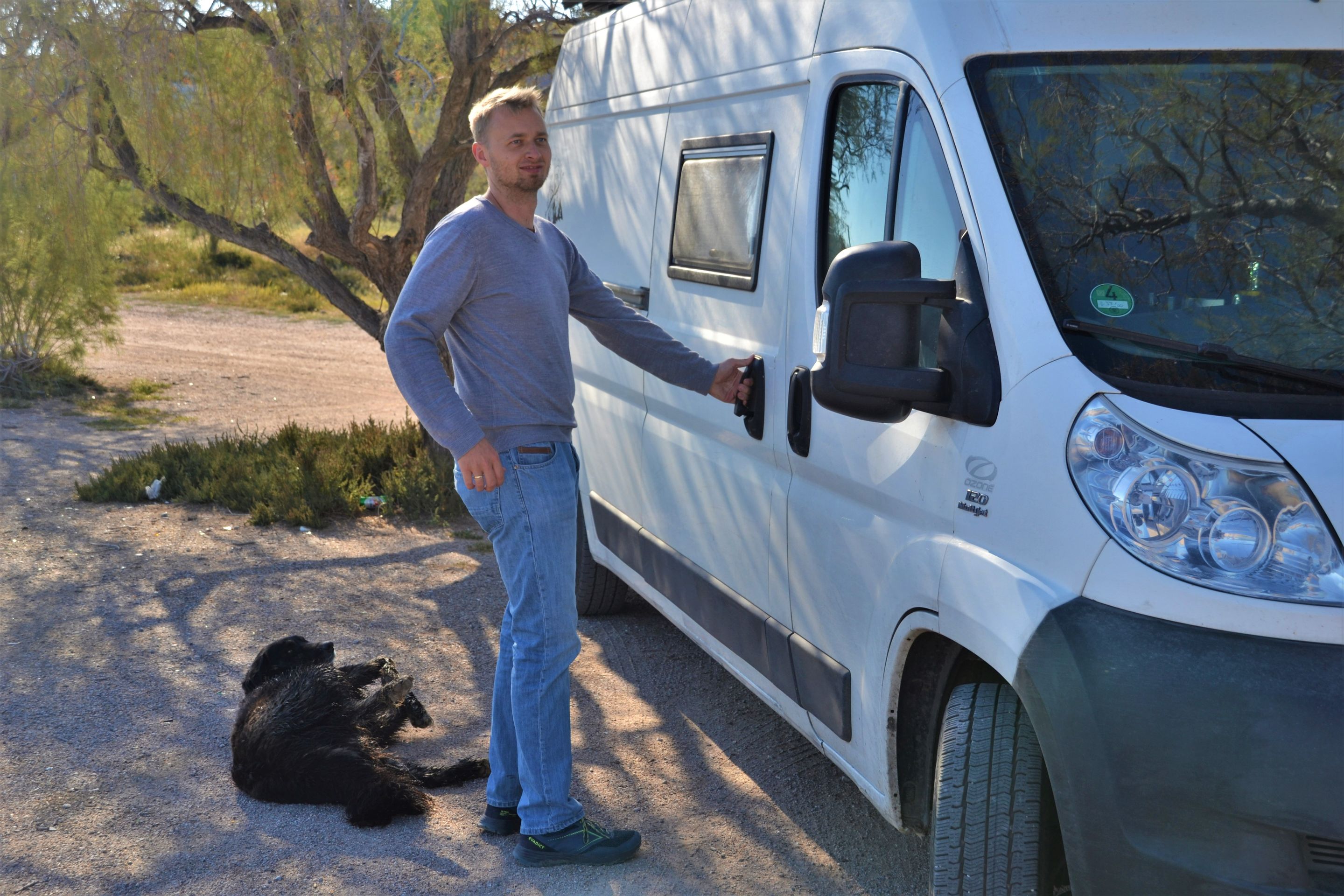
The stray dogs often lived in parking lots where we stayed overnight. Free camping is unproblematic here in Greece. As soon as we greet the passers-by, everyone is happy. Also, in other ways, Greeks are helpful. They not only frequently showed us the way by driving ahead in their cars, but they also offered us water to fill our tank and a shower. Surprisingly, there are very few campsites in Greece. Laundromats are also very rare here. The infrastructure in Greece does not seem ideal for campers, especially because the ferries to the islands are particularly expensive for campervans, motorhomes, or large cars. Nevertheless, we have met many other young people here in Greece who have quit their jobs like us and are traveling through Europe for a year. More than we have met in any other country so far.
A small detail that caught my attention in the Greek scenery are the small altars that regularly stand on country roads. They are often just a glass case with a cross on top, sometimes more elaborately decorated and look like a small church in miniature format. Almost always, they have a lit candle, a small bottle of water, and some other things inside.

What I liked about gas stations is that there is a refueling service here. Someone else refuels the car, so you don't even have to get out of the car. While the diesel is flowing, the attendant usually cleans our windshield, and occasionally, we have a short conversation.
These and many other little encounters made us always feel welcome. Because of the landscape, but especially because of the people, we definitely want to come back.
Day 196 – Overall tour 15,101 km
---- Subscribe ----
If you want to subscribe to our blog, you can either sign up with Vakantio and click on subscribe or send us a message, and we will add you to our own distribution list. We also appreciate feedback!
Email: querfeld2@gmail.com
Iscriviti alla Newsletter
Risposta
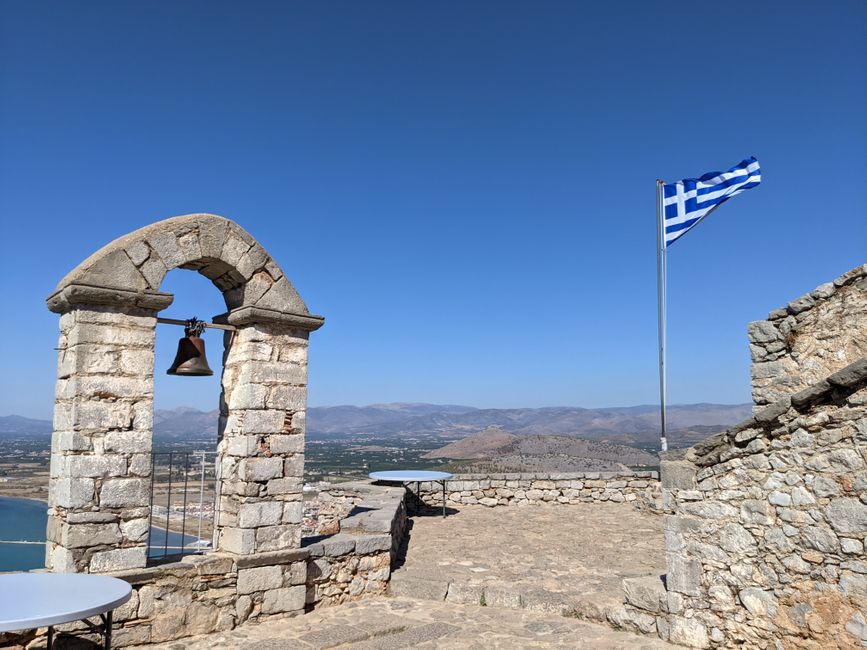
Rapporti di viaggio Grecia
